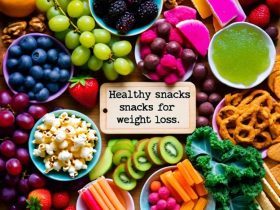Introduction to Intermittent Fasting
Intermittent fasting has grown in favor of an efficient weight loss and health-improvement technique. For those unfamiliar with the concept, “beginner 30 day intermittent fasting for weight loss” is an excellent starting place. This guide will introduce you to intermittent fasting, explain its benefits, and provide a thorough plan for achieving your weight loss objectives over the next thirty days.
What is intermittent fasting?
Intermittent fasting is a type of eating pattern in which you fast and then eat. It focuses on when you eat, not what you consume. This technique is known for its simplicity and versatility, making it a good choice for novices. Intermittent fasting, which reduces your eating window, can help you consume fewer calories while also increasing your metabolism.
Key Features of fewer Fasting
1. Flexible eating schedules.
Intermittent fasting allows for a variety of eating patterns, including the 16/8 method, the 5:2 diet, and Eat-Stop-Eat, each of which entails fasting for a set number of hours or days each week.
2. Promotes weight loss.
Intermittent fasting can help you lose weight, increase your metabolism, and burn fat. It is an effective weight loss method, especially for those who struggle with conventional diets.
3. Improves metabolic health.
Fasting has been shown to improve insulin sensitivity, reduce inflammation, and lower the risk of chronic illnesses like type 2 diabetes and heart disease.
4. Promotes Cellular Repair
Fasting activates autophagy, a mechanism in which the body eliminates damaged cells while regenerating new ones. This can improve general health and longevity.
5. Simple and Convenient
Intermittent fasting, unlike restrictive diets, requires no calorie counting or particular meal planning. It is easily integrated into any lifestyle.

Beginner 30 Day Intermittent Fasting for Weight Loss Program
Starting a 30-day intermittent fasting challenge might be a game changer for weight reduction and general health objectives, this thorough approach is specifically tailored for beginners, gradually introducing intermittent fasting while emphasizing healthy eating habits and lifestyle modifications. Follow this step-by-step program to help you lose weight and reap the benefits of intermittent fasting.
Week 1: Introduction to Fasting.
Day 1-3: Follow a 12/12 fasting schedule:
- Fast for 12 hours
- Eat for 12 hours
- For example, fast from 8 PM to 8 AM and eat from 8 AM to 8 PM.
Tips:
- Consume balanced meals with lean proteins, healthy fats, and complex carbohydrates.
- Remain hydrated with water, herbal teas, and black coffee.
- Reduce snacking between meals to help your body acclimate to the new eating habits.
Day 4-7: Switch to a 14/10 fasting schedule.
- Fasting period is 14 hours.
- Eating window: 10 hours.
- Example schedule: fast from 8 PM to 10 AM and eat from 10 AM to 8 PM.
Tips:
- Eat nutrient-dense foods to stay satisfied during fasting.
- Plan your meals and snacks to stay within the eating window.
- Adjust meal sizes to meet your body’s demands.
Week 2: Increased fasting hours.
Day 8-10: Change to a 16/8 fasting regimen.
- The fasting period is, sixteen hours.
- Eating window is 8 hours.
- Example schedule: fast from 8 to 12 p.m. and eat from 12 to 8 p.m.
Tips:
- Include plenty of vegetables, fruits, lean proteins and healthy fats in your meals.
- Stay active by doing basic workouts such as walking or yoga.
- Drink water on a regular basis to stay hydrated and avoid hunger.
Day 11-14: Stick to the 16/8 fasting regimen.
- Follow a 16/8 schedule, and prioritize nutritious meals.
- Try fresh meal ideas and recipes to keep your diet interesting.
- Get enough sleep to improve your weight loss and general health.
- Base your fasting regimen on your body’s response.
Week 3: Maintaining Consistency.
Day 15-21: Continue with the 16/8 fasting pattern.
Stick to the 16/8 fasting schedule, and prioritize quantity control and meal quality.
Tips:
- Strength exercise helps grow and maintain muscle mass.
- Avoid processed foods and sugary snacks, which might impair growth.
- Follow a consistent fasting schedule even on weekends, and social occasions.
Week 4: Increasing the Benefits of Fasting.
Day 22-25: Extend your fast to 18/6.
- The fasting period is eighteen hours.
- The eating window lasts six hours.
- For example, fast from 8 PM to 2 PM and eat from 2 PM to 8 PM.
Tips:
- Plan your meals so you get enough nutrients in a short amount of time.
- Be mindful of your hunger and fullness cues to avoid overeating.
- Exercise on a regular basis to help you lose weight.
Day 26-30: alternate between the fasting regimes of 16/8 and 18/6.
Depending on your interests, and lifestyle select either the 16/8 or 18/6 timetables.
Tips:
- Assess your progress and change your eating and fasting schedule as necessary.
- Celebrate your successes, and remain inspired for future growth.
- Discuss long-term sustainability and how to incorporate intermittent fasting into your daily routine beyond 30 days.
Conclusion
Beginning a “beginner 30-day intermittent fasting for weight loss” regimen may be a changing experience. So, this essay offers an orderly strategy to getting started and staying on track. Remember that intermittent fasting is about living a healthier lifestyle, not only reducing weight. This 30-day plan will help you reduce weight while improving your overall health.
Whether you choose 16/8, 5:2, or another fasting strategy, the main thing is to figure out what works best for you and stick to it. Embrace the process, listen to your body, and get the benefits of intermittent fasting.
Best luck on your journey to being a better and happier version of yourself!
FAQ
Is intermittent fasting suitable for beginners?
Yes, intermittent fasting is typically considered safe in healthy individuals. However, before starting any new food regimen, you should listen to your body and consult with a healthcare professional, especially if you have any underlying health issues.
Can I drink water during my fast?
Absolutely! Keeping hydrated is critical during intermittent fasting, you may have water, herbal teas, and black coffee without breaking your fast.
What should I eat during my mealtime window?
Concentrate on whole, nutrient-dense foods. Include a diverse range of fruits, vegetables, lean meats, healthy fats, and whole grains. To get the best of intermittent fasting. Avoid processed foods, and sugary beverages.
Will intermittent fasting contribute to muscle loss?
When done correctly, intermittent fasting should cause minimal muscle loss.
Fasting, physical activity, and a sufficient protein intake can all aid in maintaining muscle mass.
How soon will I experience results from intermittent fasting?
Results differ from person to person. Some people see changes in a few weeks, while others may take longer. Consistency, along with a good diet and regular exercise, is essential for long-term weight loss.












Leave a Reply